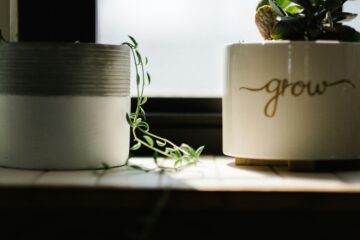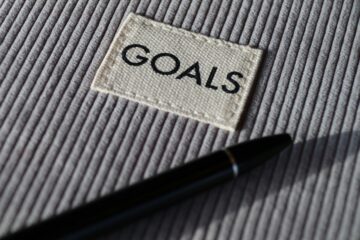Today, self-care is presented and portrayed as a luxury rather than a necessity. Many professionals, students, and entrepreneurs view it as an indulgence rather than an essential part of achieving long-term success. But what if we told you that self-care isn’t just about relaxation – it’s the foundation and start for sustainable productivity and personal growth?
At PlanWell, we believe that the traditional view on self-care needs a shift. It’s more than just treating yourself after burnout; it’s about preventing burnout in the first place.
The Problem: The Myth of the Hustle Mentality
For years, hustle culture has taken over all conversations surrounding success. The belief is that the harder and longer you work, the more successful you’ll become. Wrong. While dedication and perseverance are crucial, the cost of overworking – mental exhaustion, decreased creativity, and other issues have been largely ignored.
Studies show that chronic stress leads to cognitive decline, lowered productivity, and increased health risks. Despite these negative effects, many professionals push through exhaustion, believing that rest is a sign of weakness. However, science tells a different side: rest and recovery are essential for peak performance.
Why Overworking is Failing Us
Conventional wisdom has told us that success is achieved through long hours, relentless hustle, and sacrificing personal time to be productive. Emerging research and shifting workplace cultures are proving otherwise. Studies show that overworking leads to burnout, decreased creativity, and lower long-term efficiency. Forward-thinking companies such as Salesforce offer remote work, flexible hours, and generous PTO to ensure work-life balance. These companies now recognize that true productivity isn’t about working more-it’s about working smarter. Organizations that prioritize employee well-being, flexible schedules, and intentional rest are seeing higher engagement, retention, and innovation. At PlanWell, we advocate for a sustainable approach to success, one that integrates balance, planning, and self-care. The future of productivity is not about doing more – it’s about doing what matters most, with clarity and purpose.
Breaking the Burnout Cycle
One myth in professional and academic settings is the idea that self-care should only happen after a crisis – when you’re already mentally and physically exhausted. This approach leads to a continuous cycle of burnout and recovery, which is both unsustainable and inefficient.
Instead, we need to proactively implement self-care into our routines so that energy, creativity, and resilience become consistent. This means making self-care non-negotiable, just like any other task on your to-do list.
The Shift: Self-Care as a Performance Strategy
We need to stop thinking of self-care as a separate page from our work and personal growth. Instead, we should view it as a core productivity strategy that enhances our focus, decision-making, and efficiency.
1. Rethink Rest
One of our previous blogs, The Power of Breaks: Why Rest is the Secret to Productivity, goes into depth on how taking strategic breaks improves cognitive function and problem-solving abilities. The Pomodoro Technique leverages short, focused work sessions followed by breaks to increase efficiency. Companies like Google and Microsoft encourage employee downtime because they know that well-rested minds produce better results.
How to Implement:
- Use 90-minute work cycles, followed by 10-15 minute recovery periods.
- Take walking meetings to combine movement and ideation.
- Schedule “thinking time” into your calendar to process complex information without distractions.
2. The Role of Movement
Physical activity isn’t just for fitness- it directly impacts your overall well-being and cognitive performance. Exercise boosts endorphins, reduces stress hormones, and enhances focus. Many high-achieving individuals incorporate daily movement rituals because they understand that a sharp mind requires an active body.
How to implement:
- Try micro-movements throughout the day (stretching, standing desks, walking pads, short walks).
- Schedule movement breaks just like meetings.
- Use habit stacking – pair physical activity with existing habits/routines (brainstorming while walking).
3. Digital Boundaries
Constant connectivity blurs the line between work and personal life. The expectation to always be available has led to increased stress and reduced focus. Studies show that checking emails or messages outside work hours leads to mental overload and exhaustion.
How to implement:
- Set “no-screen times” before bed for improved sleep quality.
- Implement a do-not-disturb work mode on your devices for deep focus periods.
- Use automated responses to manage email expectations outside of work hours.
The New Blueprint: Integrating Self-Care into Your Routine
Self-care isn’t a one-size-fits-all solution. The key is building a system and routine that integrates small, impactful habits into your daily routine. At PlanWell, we encourage everyone to find an approach that combines intention, flexibility, and accountability.
Step 1: Non-Negotiables
Identify the self-care activities that truly recharge you. It might be meditation, exercise, journaling or simply having quiet time. Then, schedule them before anything else in your day.
Step 2: Use Technology for Good
Use apps and planners to automate reminders for breaks, movement, and reflection. Be mindful not to over-rely on screen because sometimes the best self-care is going offline for a few.
Step 3: Reframe Your Mindset
Instead of seeing self-care as time wasted, recognize it as an investment in your long-term success. When you prioritize yourself, you perform better in all aspects of life.
Track Progress and Adjust
Just like any productivity strategy, self-care requires reflection. Ask yourself each week:
- Did I make time for activities that recharge me?
- Where did I feel most drained, and how can I adjust?
- What small changes can I implement to improve next week?
Fill out PlanWell’s weekly accountability check-in form to be held accountable!
The Science Behind Sustainable Success
Research in neuroscience and behavioral psychology has consistently shown that sustainable success is deeply tied to how well we manage stress and recovery. The brain thrives on cycles of deep focus and rest (similar to how our muscles require recovery after exercise). When we work without allowing time for proper mental restoration, we engage in what scientists call cognitive depletion – leading to reduced decision-making abilities and lower-quality output. By incorporating self-care into our daily routines, professionals can enhance cognitive endurance, emotional resilience, and long-term productivity.
The Future of Self-Care and Success
As the conversation around work-life balance evolves, we need to redefine success. The most successful professionals are those who know when to push forward and when to step back and chill.
At PlanWell, our mission is to help people get inspired to integrate sustainable, intentional self-care into their lives – because when you take care of yourself, you show up as your best self in every area.
Start Today
Take one self-care action today: set a boundary, create a morning routine, take a break, or move your body. Small changes create lasting transformation. If you’re unsure where to start, try crafting a simple yet intentional morning routine- one that sets the tone for a balanced and productive day. This could be as easy as waking up 15 minutes earlier to enjoy a quiet moment with your coffee, journaling your intentions for the day, or doing a quick stretch to wake your body. Whatever it is, make it something that nourishes you mentally and physically. Remember, self-care isn’t about grand gestures; it’s about consistently choosing small habits that help you show up as your best self.
Want more strategies for integrating self-care into your busy life? Stay connected with PlanWell and follow us on our socials for weekly insights and tools to help you thrive.


